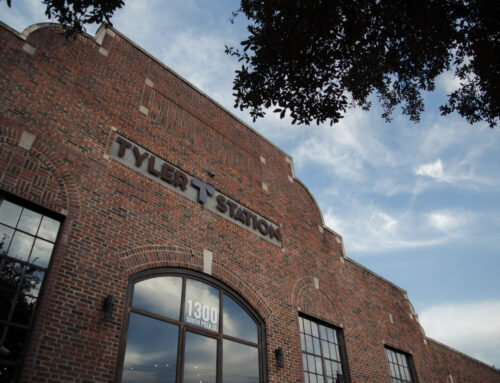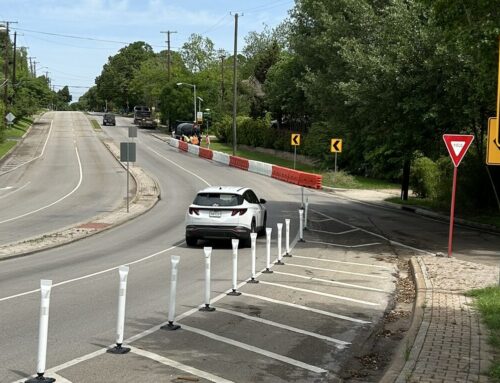The tension between history and gentrification was thick in the air last week during the first neighborhood meeting to discuss the Davis/Bishop Corridor. Larry Good, president of Dallas architecture firm Good, Fulton & Farrell, has headed up the committee of 12 Oak Cliff “stakeholders”, as he calls them, since May, and he made the presentation of the committee’s proposal.
People seemed to like the committee’s goals, which were presented right off the bat. They include statements like “Protect the stability of neighborhoods in the corridor, including architectural integrity” and “Encourage shopping and dining locally, supporting neighborhood establishments.”
But as Larry began showing conceptual designs of four- and five-story buildings, with retail on the bottom and residential living spaces on top, and talking about these kinds of places eventually being built on Davis, Bishop and near Kidd Springs Park, the audience began murmuring and shifting in their seats — then, of course, speaking their minds when the microphone was passed around. Much was said (and I’ll go into more detail throughout the week on Back Talk Oak Cliff), but one woman summed it up with: “That looks like Uptown, not Oak Cliff!”
Good repeatedly told those present that if the consensus — which he defined not as “100 percent agreement” but instead “to get as many people nodding in agreement” as possible — does not want zoning that would allow for these types of development, then it simply wouldn’t happen. But Good asked neighbors a couple of times whether they wanted to maintain the status quo, or whether they wanted the landscape of Oak Cliff to change. The way Good spoke, it was clear that he didn’t believe something in between was much of an option.
I had the opportunity later in the week to talk to Butch Boss, one of the 12 stakeholders on the committee, a resident of Winnetka Heights, and a longtime supporter of historic preservation in our neighborhood. For Boss, the most profound comment of the night was made by a woman he spoke with: “Oak Cliff isn’t meeting progress; progress is meeting Oak Cliff.”
In other words, Boss says, changes are coming, and now is the neighborhood’s chance to decide not whether those changes are going to happen, but how.





